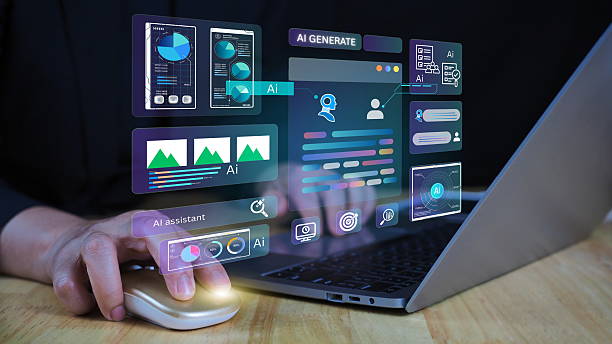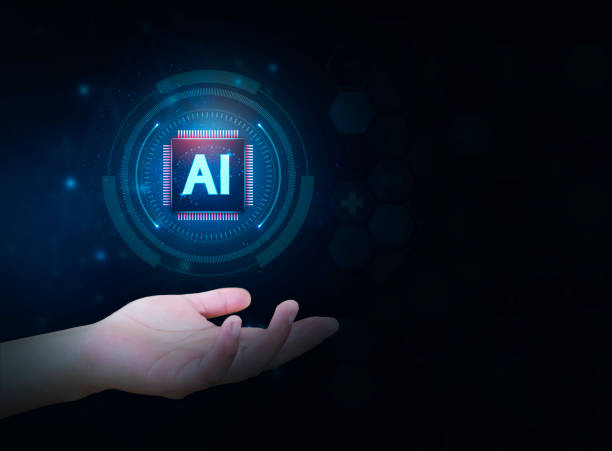What is Artificial Intelligence and How Does it Transform the World of Work?
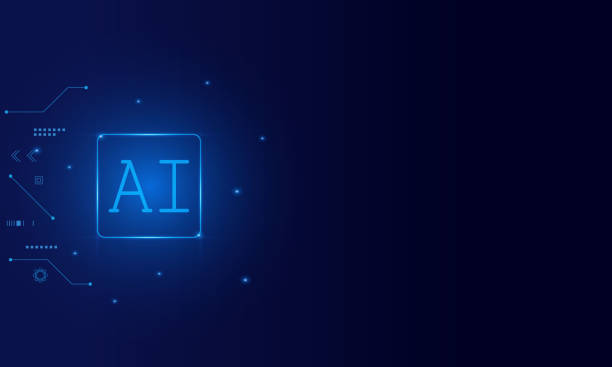
What is Artificial Intelligence and How Does it Transform the World of Work?
Artificial Intelligence (#AI), in short, is the ability of machines to perform tasks that typically require human intelligence.
This includes learning, problem-solving, pattern recognition, language understanding, and decision-making.
AI is no longer a science fiction concept but a tangible reality that has now permeated many industries and aspects of our lives.
From virtual assistants like Siri and Alexa to recommendation algorithms on Netflix and Amazon, AI is everywhere.
[Source: Wikipedia]
But the impact of AI extends beyond these everyday applications.
This technology is transforming the world of work at an unprecedented pace.
Automation of repetitive tasks, analysis of complex data, improvement of accuracy and efficiency, and creation of new job opportunities are just some of these transformations.
The AI career future looks very bright, but it also brings challenges that need to be addressed.
One of the most important impacts of AI on the world of work is automation.
Intelligent machines and algorithms can perform tasks previously done by humans, especially repetitive and routine tasks.
This automation can lead to increased productivity and reduced costs, but it can also lead to the elimination of some traditional jobs.
However, automation is only one aspect of AI’s impact on the world of work.
AI can also help humans perform their work more effectively and efficiently.
For example, intelligent algorithms can help analyze complex data and provide valuable insights that humans alone cannot discover.
AI can also help specialists in fields such as medicine, engineering, and law make better decisions and provide better services.
Thus, AI can act as a powerful tool to increase productivity and improve the quality of human work.
Does your current website reflect your brand’s credibility as it should? Or does it drive away potential customers?
Rasawweb, with years of experience in designing professional corporate websites, is your comprehensive solution.
✅ A modern, beautiful website tailored to your brand identity
✅ Significant increase in lead generation and new customers
⚡ Contact Rasawweb now for a free consultation on corporate website design!
New Job Opportunities Arising from AI Development
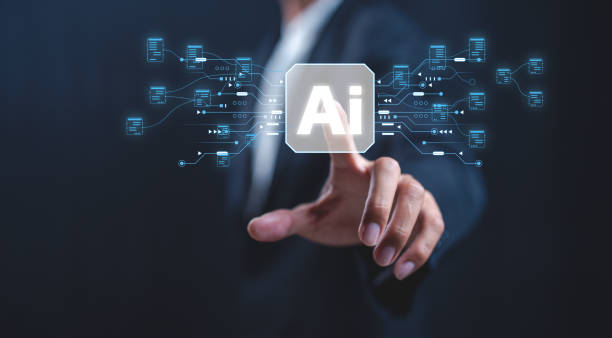
New Job Opportunities Arising from AI Development
While AI-driven automation may eliminate some traditional jobs, it also creates new job opportunities.
These opportunities exist in various fields such as AI developers, data specialists, data scientists, machine learning engineers, cybersecurity specialists, and AI consultants.
[Source: IBM Cloud Learn]
The AI career future shows that demand for AI professionals is rapidly increasing and this trend is expected to continue in the coming years.
Companies worldwide are looking for individuals who can design, develop, implement, and manage AI algorithms.
These individuals must have the necessary knowledge and skills in areas such as mathematics, statistics, computer science, and machine learning.
In addition to technical jobs, new job opportunities are also emerging in non-technical fields.
For example, companies need consultants who can help them understand and implement AI strategies.
There is also a need for professionals who can manage ethical and social issues related to AI.
To benefit from these new job opportunities, individuals must keep their skills up to date and receive training in AI-related fields.
This includes learning programming languages like Python and R, familiarity with machine learning algorithms, and understanding basic AI concepts.
Skills Required for Success in Future Jobs with AI
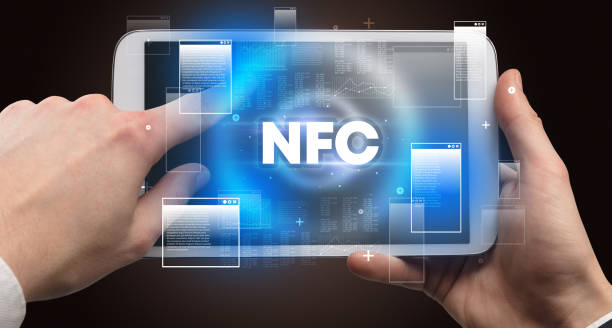
Skills Required for Success in Future Jobs with AI
To succeed in the AI career future, technical knowledge alone is not enough.
Individuals must also possess soft skills such as critical thinking, problem-solving, creativity, communication, and collaboration.
AI can perform routine and repetitive tasks, but humans must be able to solve complex problems, generate new ideas, and communicate effectively with others.
Critical thinking means the ability to logically and objectively evaluate information and arguments.
This skill is crucial for identifying misinformation and making informed decisions.
Problem-solving means the ability to identify and solve problems creatively and effectively.
This skill is essential for tackling new and complex challenges.
Creativity means the ability to generate new and innovative ideas.
This skill is very important for creating new products and services and improving existing processes.
Communication means the ability to communicate effectively with others, convey information clearly and concisely, and actively listen to others’ opinions.
Collaboration means the ability to work effectively and constructively with others to achieve common goals.
In addition to these skills, individuals must be flexible and adaptable to change.
AI is evolving rapidly, and individuals must be able to quickly learn new skills and adapt to changes.
Also, individuals must be committed to lifelong learning and always look for opportunities to improve their knowledge and skills.
Finally, individuals must have a deep understanding of the ethical and social issues related to AI.
AI can have profound impacts on society, and individuals must be able to understand these impacts and use AI responsibly.
| Skill | Description |
|---|---|
| Critical Thinking | Logically evaluating information and arguments |
| Problem-Solving | Creatively identifying and solving problems |
| Creativity | Generating new and innovative ideas |
| Communication | Effectively communicating with others |
| Collaboration | Effectively working with others |
Industries Most Affected by Artificial Intelligence
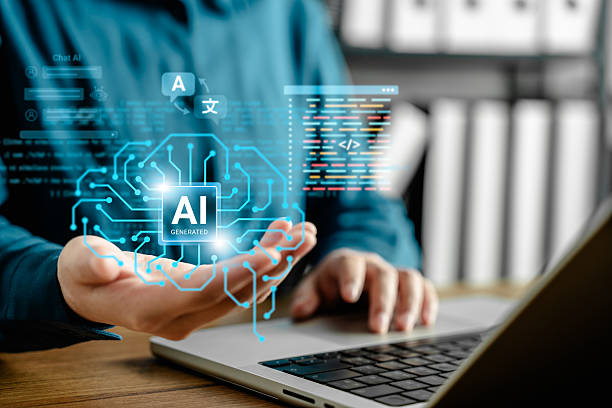
Industries Most Affected by Artificial Intelligence
Artificial intelligence is currently used in many industries, but some industries are most affected by this technology.
These industries include:
- Healthcare AI is used in disease diagnosis, drug development, personalized treatment, and healthcare management.
- Finance AI is used in fraud detection, risk management, customer service, and investment.
- Manufacturing AI is used in automating production processes, quality control, and optimizing the supply chain.
- Retail AI is used in personalizing the shopping experience, product recommendations, and inventory management.
- Transportation AI is used in self-driving cars, route optimization, and traffic management.
The AI career future creates new job opportunities in each of these industries.
For example, in the healthcare industry, there is a need for specialists who can develop and implement AI algorithms for disease diagnosis.
In the financial industry, there is a need for specialists who can design AI algorithms for fraud detection and risk management.
In the manufacturing industry, there is a need for specialists who can design and implement AI-based automation systems.
Given these trends, individuals working in these industries must keep their skills updated in AI-related fields to benefit from new job opportunities.
Did you know that 94% of users’ first impressions of a business are related to its website design? With professional corporate website design by **Rasawweb**, turn this first impression into an opportunity for growth.
✅ Attract more customers and increase sales
✅ Build credibility and trust in the audience’s eyes⚡ Get a free website design consultation now!
Challenges Ahead for AI Development and Its Impact on the Labor Market
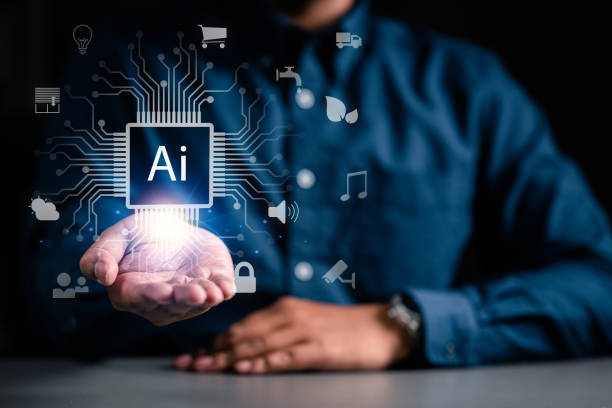
Challenges Ahead for AI Development and Its Impact on the Labor Market
The development of AI also brings challenges.
One of the most important challenges is the issue of AI ethics.
AI algorithms can make decisions that have profound impacts on people’s lives, and it is necessary that these decisions be made fairly and transparently.
Another challenge is cybersecurity.
AI systems can be vulnerable to cyberattacks, and it is necessary to take appropriate measures to protect these systems.
The AI career future also indicates that in addition to these challenges, the development of AI can also have negative impacts on the labor market.
AI-driven automation can lead to the elimination of some traditional jobs, and it is necessary for governments and companies to take measures to mitigate these impacts.
These measures can include providing retraining for workers, creating new job opportunities, and offering social support.
Furthermore, it is necessary for governments and companies to formulate policies for regulating AI development.
These policies should be designed in a way that allows us to benefit from the advantages of AI while preventing its potential risks.
The Role of Governments and Organizations in Managing the Impact of AI on Jobs

The Role of Governments and Organizations in Managing the Impact of AI on Jobs
Governments and organizations play a significant role in managing the impact of AI on jobs.
Governments can help mitigate the negative impacts of AI-driven automation by providing retraining for workers, creating new job opportunities, and offering social support.
Additionally, governments can formulate policies to regulate AI development to leverage the benefits of this technology while preventing its potential risks.
In the AI career future, organizations can also help their employees adapt to changes brought by AI by investing in training and skill development.
Furthermore, organizations can help their employees benefit from new job opportunities by creating flexible and innovative work environments.
In addition, organizations can use AI responsibly by considering its ethical and social implications.
Overall, managing the impact of AI on jobs requires collaboration among governments, organizations, and individuals.
By working together, we can harness the benefits of AI while preventing its potential risks.
Trends and Future Forecasts in the AI Job Market
![]()
Trends and Future Forecasts in the AI Job Market
The AI job market is growing rapidly, and this trend is expected to continue in the coming years.
According to forecasts, the demand for AI professionals will significantly increase in the future, and companies worldwide will seek individuals who can design, develop, implement, and manage AI algorithms.
Furthermore, AI is expected to penetrate many more industries, creating new job opportunities in various fields.
The AI career future indicates that one of the most important future trends in the AI job market is an increased focus on ethical and responsible AI.
Companies and governments are increasingly addressing the ethical and social issues related to AI and seeking solutions to ensure that AI is used fairly and transparently.
This trend could lead to the creation of new job opportunities in fields such as AI ethics, AI law, and AI accountability.
Another trend is the increasing use of AI in non-technical fields.
AI is currently used in many technical industries, but in the coming years, its use is expected to increase in non-technical fields such as education, art, and humanities.
This trend could lead to the creation of new job opportunities for individuals with the necessary knowledge and skills in these areas.
Finally, AI is expected to have profound impacts on the labor market, and it is necessary for individuals and organizations to prepare for these changes.
By investing in education and skill development, creating flexible and innovative work environments, and considering the ethical and social issues related to AI, we can harness the benefits of this technology while preventing its potential risks.
Training and Skill Development for Entering the AI Job Market
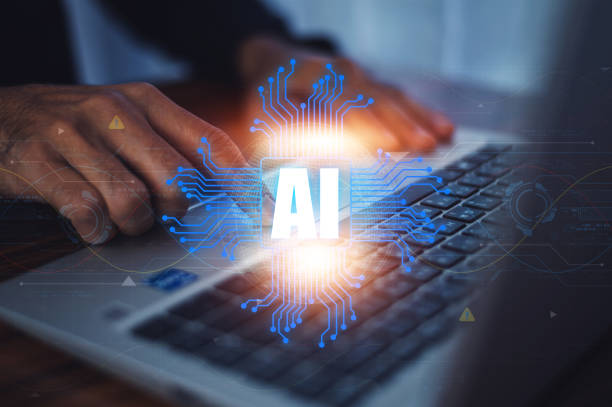
Training and Skill Development for Entering the AI Job Market
To enter the AI job market, individuals must acquire the necessary knowledge and skills in various fields.
This includes learning programming languages like Python and R, familiarity with machine learning algorithms, understanding basic AI concepts, and acquiring soft skills such as critical thinking, problem-solving, creativity, communication, and collaboration.
For the AI career future, there are various ways to train and develop skills in AI-related fields.
Individuals can participate in online courses, workshops, and university programs.
Additionally, individuals can enhance their knowledge in these areas by studying books, articles, and online resources.
Furthermore, individuals can gain practical experience and improve their skills by participating in practical projects and internships.
To succeed in the AI job market, merely having technical knowledge and skills is not enough.
Individuals must also possess soft skills such as critical thinking, problem-solving, creativity, communication, and collaboration.
These skills help individuals solve complex problems, generate new ideas, and communicate effectively with others.
Also, individuals must be flexible and adaptable to change.
AI is evolving rapidly, and individuals must be able to quickly learn new skills and adapt to changes.
Finally, individuals must be committed to lifelong learning and always look for opportunities to improve their knowledge and skills.
Falling behind in the competition with large online stores?
Rasawweb, with professional e-commerce website design, brings your business online and increases your market share!
✅ Boost brand credibility and customer trust
✅ Easy shopping experience leads to more sales
⚡ Act now to get a free website design consultation!
Impact of AI on Traditional Jobs and Adaptation Strategies
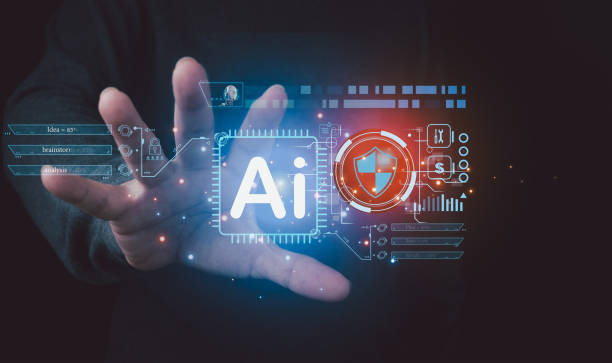
Impact of AI on Traditional Jobs and Adaptation Strategies
Artificial intelligence has profound impacts on traditional jobs.
AI-driven automation can lead to the elimination of some traditional jobs, and it is necessary for individuals and organizations to prepare for these changes.
There are various strategies for adapting to the impact of AI on traditional jobs.
For the AI career future, one of the most important strategies is training and developing new skills.
Individuals must learn skills that complement AI and cannot be easily replaced by machines.
This includes soft skills such as critical thinking, problem-solving, creativity, communication, and collaboration.
Also, individuals must learn new technical skills related to AI, such as data analysis, machine learning, and cybersecurity.
Another strategy is changing job roles.
Organizations can redesign traditional job roles to adapt to AI.
This can include adding new tasks that require human skills, such as management, supervision, and quality control.
The third strategy is creating new job opportunities.
Governments and organizations can create new job opportunities related to AI by investing in new and innovative industries.
This can include supporting startups, encouraging research and development, and providing specialized training.
Ultimately, it is necessary for individuals and organizations to view the changes brought by AI as an opportunity.
AI can help us perform our work more effectively and efficiently, live better lives, and create a more just and sustainable society.
By investing in education and skill development, changing job roles, and creating new job opportunities, we can harness the benefits of AI while preventing its potential risks.
| Industry | AI-Related Job Opportunities |
|---|---|
| Healthcare | Disease diagnosis algorithm developers, medical data specialists |
| Finance | AI fraud analysts, risk management consultants |
| Manufacturing | Automation engineers, quality control specialists |
| Retail | Personalized shopping specialists, sales data analysts |
| Transportation | Self-driving car engineers, route optimization specialists |
How to Prepare for the AI Career Future?
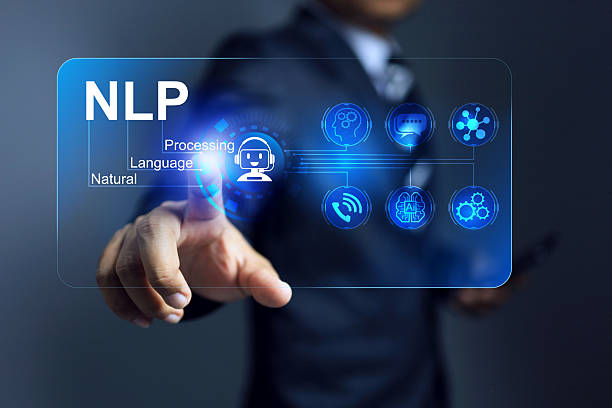
How to Prepare for the AI Career Future?
Preparing for the AI career future requires a proactive and strategic approach.
Here are some key tips to help you on this path:
- Continuous Learning The world of AI is rapidly changing, so continuous learning is essential.
Enroll in online courses, read relevant books and articles, and attend conferences and seminars. - Technical Skill Development Acquire the technical skills needed to work in AI.
This includes learning programming languages like Python and R, familiarity with machine learning algorithms, and understanding basic AI concepts. - Soft Skill Development Develop soft skills such as critical thinking, problem-solving, creativity, communication, and collaboration.
These skills will help you solve complex problems, generate new ideas, and communicate effectively with others. - Networking Connect with AI professionals and join relevant online and offline communities.
This will help you stay informed about the latest trends and job opportunities and expand your professional relationships. - Portfolio Building Work on practical projects and create a portfolio of your work.
This will help you showcase your skills to employers and increase your chances of employment. - Specialization Focus Choose a specialized area in AI and develop your skills in that area.
This will help you stand out in the competitive job market and be recognized as an expert.
By following these tips, you can prepare yourself for the AI career future and benefit from the new job opportunities this technology creates.
Frequently Asked Questions
| Question | Answer |
|---|---|
| What impact will AI have on the future job market? | AI will automate repetitive jobs, but at the same time, it will create new and more complex jobs in areas such as the development, maintenance, and training of AI systems. |
| Which jobs are most at risk of being replaced by AI? | Jobs involving repetitive, rule-based tasks with little need for creativity or emotional intelligence, such as some manufacturing jobs, data entry, and simple customer service, are most at risk. |
| What skills are essential for success in the future job market with AI? | Skills such as critical thinking, complex problem-solving, creativity, emotional intelligence, data literacy, the ability to work with AI, and lifelong learning are highly important. |
| Will AI lead to widespread unemployment? | Some jobs will be lost, but history shows that new technologies, instead of widespread unemployment, reshape the job market and create new jobs. Adaptation and retraining are crucial. |
| What new job opportunities emerge with the advent of AI? | Jobs such as Machine Learning Engineer, Data Scientist, AI Ethicist, Human-AI Interaction Designer, and Digital Transformation Consultant are among the new opportunities. |
| What is the role of education in preparing for the AI career future? | Education must focus on developing soft skills, computational thinking, digital literacy, and the ability to continuous learning to prepare individuals for future changes. |
| How can I prepare myself for changes in the labor market caused by AI? | By learning new skills related to AI and data, strengthening soft skills, developing critical and creative thinking, and adopting lifelong learning, you can prepare yourself. |
| Will AI ethics become an important career field? | Yes, given increasing concerns about biases, privacy, and automated decision-making in AI, the role of AI ethics specialists will become crucial for ensuring its responsible development. |
| What is the importance of human-AI collaboration in the career future? | Human-AI collaboration, rather than competition, will shape the future of the job market. AI can be a tool to increase human productivity and allow focus on more complex and creative tasks. |
| Which industries will be most affected by AI? | Almost all industries will be affected, but areas such as healthcare, finance, transportation, manufacturing, education, and customer service are pioneers in adopting and transforming through AI. |
And other services of Rasawweb Advertising Agency in the field of advertising
- Smart Custom Software: Revolutionize user interaction with precise audience targeting.
- Smart Advertising Campaign: Transform click-through rates with personalized user experience.
- Smart SEO: Transform online growth with Google Ads management.
- Smart UI/UX: A creative platform to improve click-through rates with attractive user interface design.
- Smart Website Development: A creative platform to improve sales increase with custom programming.
And over hundreds of other services in the field of internet advertising, advertising consultation, and organizational solutions
Internet Advertising | Advertising Strategy | Advertorials
Sources
AI Career Future in Iran
Analysis of AI’s Career Future
New Opportunities in the AI Job Market
AI Career Outlook: Opportunities and Challenges
? With Rasawweb Afarin, transform your business in the digital world. From secure and professional website design to SEO and targeted content marketing, we offer comprehensive solutions for your success.
📍 Tehran, Mirdamad Street, next to Bank Markazi, Kazeroun Jonoubi Alley, Ramin Alley No. 6

